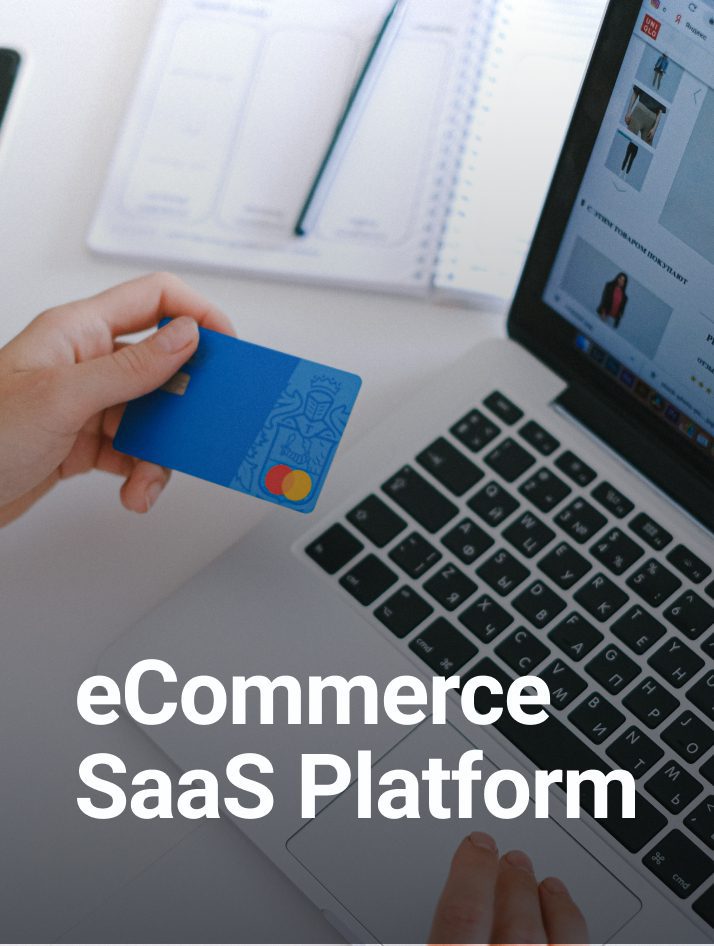articles
What Is an eCommerce SaaS Platform & How to Manage eCommerce in an Efficient Way

More than ever, online store owners are shifting towards using Software-as-a-Service (SaaS) eCommerce platforms as opposed to traditional open-source or on-premise softwares to manage their eCommerce needs. Ecommerce solutions are plentiful, but we’ll help you determine how to choose a platform that may be the best fit for your business’s complex needs. We’ll also help you understand how you can manage your eCommerce in an efficient way specific to your business. Let’s get started.
What is an Ecommerce Saas Platform?
A SaaS eCommerce platform is a type of eCommerce software delivered in the form of a cloud-based system. An eCommerce SaaS platform may take care of business-related needs for online store owners such as inventory management, SEO features, and offer easy-to-use drag and drop functions for your eCommerce website.
This type of software can be accessed from all types of devices and browsers, and is often structured, distributed, and sold through a subscription business model.

Some popular and well-known eCommerce SaaS platforms include Shopify, BigCommerce, Office 365, and Salesforce.
What Is the Difference Between a Traditional eCommerce Platform and an eCommerce SaaS System?
When choosing what type of SaaS eCommerce system you’d like to employ in your business, it’s essential to understand that there are stark differences between the types of eCommerce platforms available. Typically, when choosing the right eCommerce system for your company, you’ll choose between SaaS eCommerce platforms, open-source eCommerce platforms, or on-premise e-commerce softwares.
In the case of SaaS eCommerce systems, a 3rd party typically handles the security and protection of all server-related matters. SaaS eCommerce systems often are able to manage a variety of your needs as a customer at once and function as a one-stop-shop for all of your eCommerce platform necessities.
Traditional eCommerce platforms, such as open-source and on-premise softwares, typically require you to manage your own security. Sometimes, this can be expensive and time-consuming, and it is often far easier to employ the use of a SaaS eCommerce platform to care for all of these needs. With traditional eCommerce platforms, you’ll typically need to find a host for your web hosting as well as take care of PCI compliance and installing firewalls. You may also need to work with a designer to storefront design and hire tech professionals to help you navigate security patches and software updates. This can be overwhelming for any eCommerce store or business.

What Are the Advantages of SaaS eCommerce?
SaaS softwares carry a wide set of advantages. For example, SaaS ecommerce platforms typically offer users:
- Easier maintenance. Unlike traditional eCommerce platforms, SaaS eCommerce platforms aren't installed on-site or maintained by you, the user, or the business owner. Instead, your SaaS eCommerce provider hosts your SaaS platform on their own servers. Therefore, this SaaS provider is responsible for the maintenance of security and performance on their own servers. In turn, this makes it much easier to run your eCommerce business or other online business.
- Quick and easy installation. First, considering that SaaS eCommerce platforms are typically cloud-based, they tend to release a routine automatic update that upgrades their current software to their latest software version. If you have a SaaS eCommerce platform, you will often automatically benefit from its latest updates.
- Monthly subscriptions and flexible payment options. Additionally, SaaS eCommerce softwares and platforms typically offer monthly subscriptions, which is often less daunting to pay for than a traditional eCommerce platform that is not cloud-based.
- Increased security. Due to the fact that SaaS softwares also come with automatic updates, you typically have to stress less about maintaining high levels of security on your SaaS platform. As new threats present themselves to your specific SaaS platform’s market, updates are automatically rolled out in real-time to prevent things like hacks, data loss, data breaches, and other security issues.
- Changes in user experience. Once again, due to the cloud-based nature of SaaS eCommerce platforms, as updates are made to fit changing markets and user personas, user experience updates will also be made.
- Support. Since SaaS eCommerce platforms and softwares typically host servers and bear the responsibility of security and performance, they also typically offer high-quality customer support to their customers.
- Scalability. By choosing a one-stop-shop for an ecommerce platform that manages both your potential security issues, you’re able to spend time scaling your business.
Disadvantages of using eCommerce SaaS
Various disadvantages also accompany the use of eCommerce SaaS platforms. For example, to access your eCommerce SaaS platform, you will typically need access to a healthy internet connection. Without this, you may be unable to manage your online store.
Many eCommerce SaaS platforms may also not always be completely integrable between different applications and softwares.
Last, you have less control over certain functions with an online eCommerce SaaS platform than you would with open-source software or on-premise software.
How to Choose Your SaaS eCommerce Provider
There are various considerations that you ought to take into choosing the right SaaS eCommerce provider for you.
- Evaluate the level of expertise possessed by your potential provider.
- Be sure to properly evaluate the level of customer support that your potential SaaS eCommerce platform offers.
- Check whether the SaaS eCommerce provider you’re debating using will be scalable and help you scale your eCommerce store.
- Determine whether your SaaS eCommerce provider will help you with optimizing your website for search engines.
- Determine that your potential SaaS eCommerce platform will provide you and your customers with an optimal level of security.
- Evaluate whether your potential eCommerce provider will be mobile-friendly. Big Commerce predicts that mobile commerce makes up one-third of all retail sales.
- Ensure that you are both discerning and patient when choosing the right SaaS eCommerce provider to fit the full scope of complexities of your store’s needs. Choosing the wrong SaaS eCommerce provider can have a grave impact on the overall success of your business.

FAQ: Is the SaaS eCommerce System Suitable for a Local Business?
There is a diverse array of SaaS eCommerce systems with different functionalities. Of course, these eCommerce systems tend to target their services towards different users. Some of these target users may include small businesses.
So, yes, the SaaS eCommerce system is often suitable for small local businesses, but whether or not a certain platform is suitable for your business depends completely on your business’s needs.
For more information regarding SaaS eCommerce systems and how to properly lasso the power of intentional UX design for your business, contact WANDR today.


.png)

